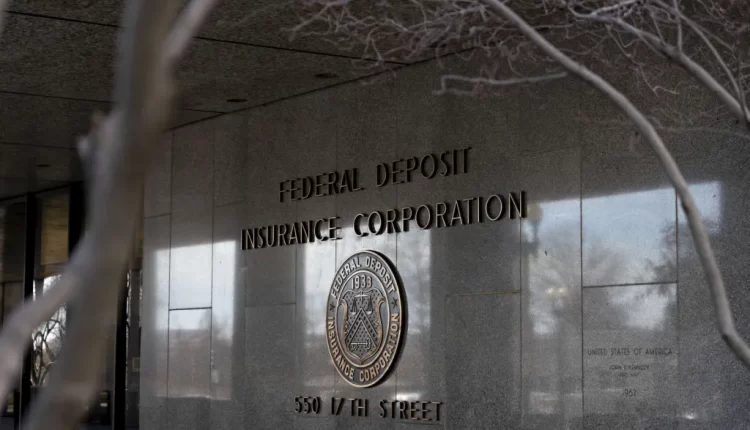The Federal Deposit Insurance Corporation (FDIC) called for an increase in the deposit insurance limit for business payment accounts in a report on Monday, in light of the recent banking crisis.
The current FDIC insurance limit is $250,000 per depositor for each account ownership category, despite that, it backed deposits over that limit during the collapse of Silicon Valley Bank (SVB) and Signature Bank, to prevent any further risks.
The FDIC also provided unlimited deposit insurance to accounts with non-interest for a limited time during the Great Recession.
“Individuals can easily get more coverage by opening additional accounts at different banks. But that’s much more complicated for businesses, which generally keep the funds they use to pay employees in one bank account,” said the FDIC.
The FDIC proposed two options for deposit insurance reforms; either raising the insurance cap for all bank accounts, or extending unlimited deposit insurance to all accounts, with the best option is to target business accounts for increased insurance. Targeting business accounts for increased insurance is better as it is the one with the most financial stability benefits relative to its costs.
Raising the deposit insurance cap is not fully guaranteed, as banks could start taking on more risk with their depositors’ money without having to worry as much about a bank run, as well as increasing costs.
The fund, which had a balance of $128.2 billion at the end of 2022, used to back depositors’ money is financed by premiums that banks and savings institutions pay. Following the FDIC seising First Republic Bank on Monday and SVB and Signature Bank’s failures, it is estimated to have a balance of $92.7 billion, the lowest since 2018.
Increasing the insurance cap on business payment accounts would likely result in increasing the premiums that banks pay to the FDIC, and will likely require Congressional action, said FDIC officials.


